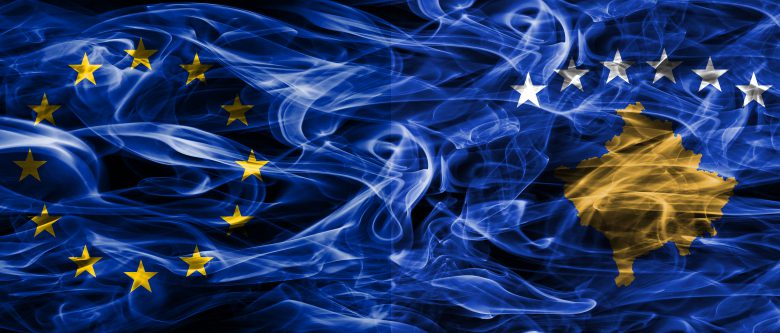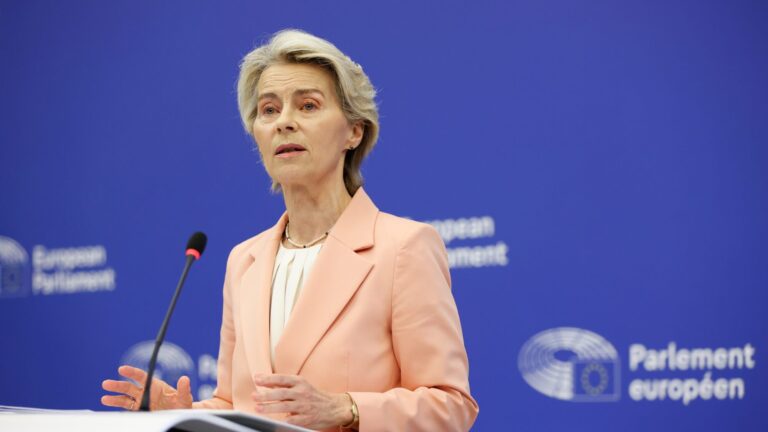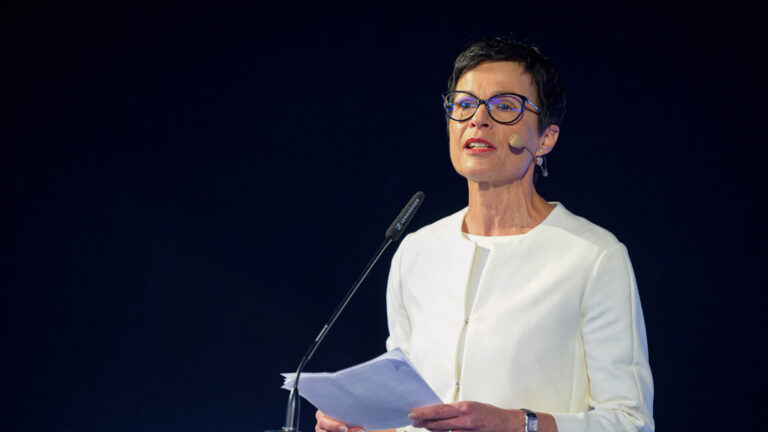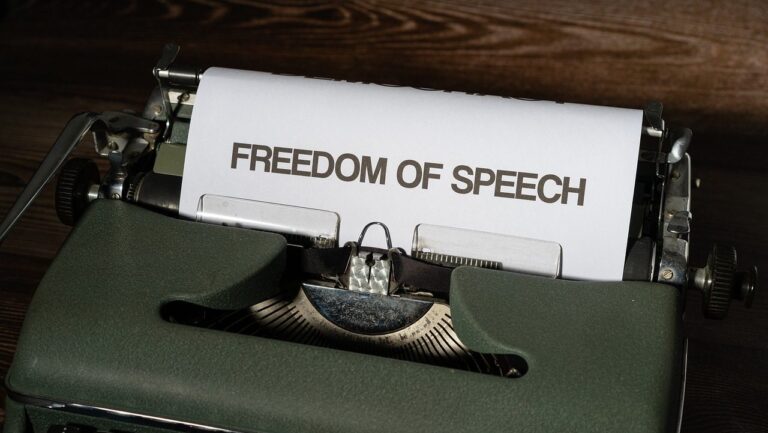On Thursday, December 15th, Kosovo’s Prime Minister Albin Kurti submitted his country’s application to join the European Union. What is likely to be a complicated process, potentially taking years, has one other catch: Kosovo’s continued arguments with neighboring Serbia need to be resolved.
As is custom, the head of state of the EU applicant personally makes the request to a representative of the country which at that time holds the EU’s rotating presidency. On Thursday, Kurti continued the tradition, as he met with Czech minister for EU affairs Mikulas Bek.
At the heart of Europe, in the beautiful city of Prague, we officially submitted to the Czech EU Presidency our application for EU membership.
— Albin Kurti (@albinkurti) December 15, 2022
This is a historic day for the people of Kosova, and a great day for democracy in Europe. pic.twitter.com/BD4VwrjODa
“This is a historic day for the people of Kosovo and a great day for democracy in Europe,” Kurti said during his Prague address, adding that the application letter he carried contained “the hopes and dreams of our citizens, who have worked so hard to reach this day.”
Recognising that approval by the EU would be “based on our own merits,” he stressed that they want “no back door nor fast track,” and that they “want to build the EU in our country with our people—a home grown EU, yet, not self-made: we need the EU’s help in Kosovo, a country that strives, in turn, to contribute to the EU.”
With its application, Kosovo is now the last Western Balkan country to seek to join the EU after Brussels recognized Bosnia’s candidate status earlier in the week, a decision which its leaders ratified Thursday evening.
EU leaders #EUCO decided to grant EU candidate status to Bosnia and Herzegovina.
— Josep Borrell Fontelles (@JosepBorrellF) December 15, 2022
Today, we confirm that the future of BiH lies in the EU.
This is a decision for the people of BiH. Political leaders can now turn this ambition into reality through decisive reforms. pic.twitter.com/VjLadBPgWL
Following the 1998-1999 ethnic conflict which prompted a controversial intervention by NATO forces, Albanian-majority Kosovo declared independence from Serbia in 2008 with most of the West’s support.
Currently, Kosovo’s independence is recognized by around 110 countries. However, Belgrade—along with its key allies Russia and China—still deems it to be Serbian territory. More than half of the 193 UN countries do not recognize Kosovo’s independence, which is not a UN member.
Even more of an obstacle to Kosovo’s aspiration for EU membership are five of the union’s present members. Greece, Spain, Romania, Slovakia, and Cyprus have never recognized Kosovo as an independent state—a decision likely borne from these nations’ anxieties about separatist movements on their own soil.
One crucial prerequisite for Kosovo’s entrance is that it needs to ‘normalize’ its relations with Belgrade (which equally applies to Serbia, which also seeks EU membership). Despite attempts by the EU as well as the U.S. to foster dialogue between Pristina and Belgrade, the needle towards harmony has not budged much, if at all.
Matters are in fact arguably worse than they have been in quite some time. As previously reported by The European Conservative, the northern region of Kosovo (which shares a border with Serbia) recently saw violence escalate.
While no new flare-ups have been reported since then, the two sides are presently engaged in what can only be described as a tense stand-off, as ethnic Serbs in that region have erected barricades to prevent police movement.
On Thursday, during his Hungary visit, Serbian President Aleksandar Vučić said that Pristina’s EU membership bid was a violation of the Washington Agreement and of Article 49 of the Treaty on European Union, under which only states may seek membership in the bloc.
“I don’t know what criterion is used to decide whether it is a country or not: the opinion of one country, albeit the largest one in the EU, the collective opinion of all EU countries or UN membership. But we have already learned all this, we must fight and protect our state interests,” the Serbian leader said.
Belgrade, he added, would give its official response after a government session scheduled for that evening.
At the urging of former U.S. President Donald Trump, the so-called Washington Agreement was signed on September 4th, 2020 by Vučić and Avdullah Hoti, the prime minister of Kosovo. The document contains mutual commitments from Belgrade and Pristina, including a moratorium on Pristina’s promotion of its candidacy to international organizations and Belgrade’s suspension of activities aimed at making other nations revoke their recognition of Kosovo’s independence. In early August 2021, the parliament of Kosovo refused to ratify the Washington Agreement.
While Kosovo’s EU membership might not be in the cards anytime soon, the European Parliament has already approved an agreement that would allow Kosovar visitors to enter the bloc without needing a visa.
“The new rules would allow Kosovo passport holders to travel to the EU without a visa for a period of stay of 90 days in any 180-day period,” the European Council said on Wednesday, December 14th.
Should EU member states and the EU Parliament move forward in its formal adoption of these rules, as is expected, they would apply starting January 2024.
The case of Kosovo and Serbia, as is amply clear by now, is sure to cause some in Brussels a throbbing headache.





